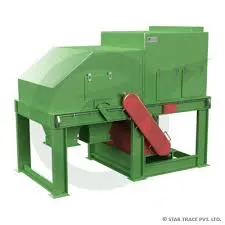

Th11 . 19, 2024 13:45 Back to list
The Importance of Scrap Processing Plants in Sustainable Development
In an era marked by escalating environmental concerns and the pressing need for sustainable practices, scrap processing plants have emerged as vital facilities in the recycling chain. These plants play a pivotal role in transforming waste materials into valuable resources, thereby contributing significantly to waste management, energy conservation, and economic development.
Understanding Scrap Processing
Scrap processing refers to the method of recycling scrap materials, which can include metals, plastics, textiles, and other industrial by-products. Scrap processing plants are equipped with advanced technologies that enable them to sort, shred, melt, and refine these materials. The resulting products can then be reintroduced into the manufacturing pipeline, reducing the demand for virgin raw materials. This process not only helps in conserving resources but also minimizes environmental pollution and greenhouse gas emissions.
Environmental Benefits
One of the primary advantages of scrap processing plants is their contribution to environmental sustainability. By recycling scrap materials, these facilities significantly reduce the volume of waste sent to landfills, which is a critical issue in many regions around the world. Landfills are not only unsightly but can also pose severe risks to the environment, including soil and water contamination. By diverting scrap from landfills, processing plants help reduce these risks, promoting a cleaner and healthier environment.
Additionally, the energy savings associated with recycling are substantial. The energy required to produce new products from recycled materials is often significantly lower than that required to extract and process virgin materials. For example, recycling aluminum saves up to 95% of the energy required for primary production. This energy efficiency translates to lower carbon emissions, making scrap processing a key component in combating climate change.
Economic Impact

Scrap processing plants not only benefit the environment but also play a crucial role in local and global economies. They create jobs in various sectors, from labor-intensive material collection to skilled roles in processing and management. The recycling industry has become a significant source of employment, contributing to economic stability and growth, especially in regions where traditional industries may be declining.
Moreover, the materials recovered from scrap processing can help stabilize commodity prices. By providing a consistent and reliable supply of recycled materials, these plants can offset the fluctuations in raw material prices, benefiting manufacturers and consumers alike. The economic interplay between scrap processing and manufacturing underlines the importance of developing resilient supply chains that prioritize recycled materials.
Challenges and Innovations
Despite the clear benefits, scrap processing plants face several challenges. Compliance with environmental regulations, fluctuating market conditions, and competition from imported materials can complicate operations. However, innovation in technology and processes offers solutions. Many scrap processing plants are investing in automation, improving efficiency and safety while decreasing operational costs. Emerging technologies, such as artificial intelligence and advanced sorting systems, enable more precise recycling, leading to higher-quality recycled materials and reduced waste.
Furthermore, public awareness and participation in recycling initiatives are crucial for the success of scrap processing plants. Education campaigns that highlight the importance of recycling and proper disposal of waste can encourage more individuals and businesses to engage in sustainable practices. As communities become more invested in recycling, the volume of materials collected for processing will continue to rise, enhancing the economic and environmental benefits of scrap processing.
Conclusion
Scrap processing plants are indispensable in our collective effort towards sustainability. They serve as a bridge between waste materials and new products, fostering a circular economy that emphasizes resource efficiency and environmental stewardship. As we confront the challenges of waste management and look towards a sustainable future, the role of scrap processing in combating climate change, driving economic growth, and preserving natural resources will undoubtedly become increasingly important. Investing in these facilities is not just an environmental necessity but a strategic move towards a more sustainable and resilient economy.
Latest news
Troubleshooting Common Eddy Separator Problems
NewsJul.04,2025
The Role of Metal Recycling Plants in Circular Economy
NewsJul.04,2025
The Impact of Recycling Line Pickers on Waste Management Costs
NewsJul.04,2025
Safety Features Every Metal Shredder Should Have
NewsJul.04,2025
How Industrial Shredders Improve Waste Management Systems
NewsJul.04,2025
How Cable Granulators Contribute to Sustainable Recycling
NewsJul.04,2025